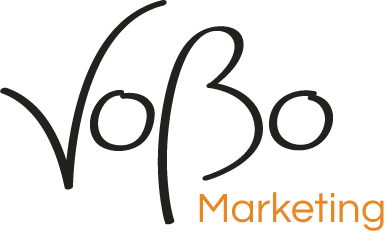Keywords:
feed conversion, feed efficiency, weight gain.Abstract
Oregano as vegetal extract has been investigated scientifically and has proven to be an effective antibiotic; it does not generate resistant strains as it happens with the use of antibiotic growth promoters (AGP), and is also considered an alternative to improve productive performance in livestock farms. This is why the aim of study was to evaluate the use of oregano extract on the gain of final weight, conversion and feed efficiency in rabbits, for this purpose an experiment completely randomized with 12 New Zealand rabbits divided into 3 treatment was performed; T1, was determined as control, and the base feed was 100 g of rabbit feed; T2, to 100 g of rabbit feed was added 1 ml of oregano extract and T3, 100 g of rabbit feed plus 3 ml of oregano. The research lasted 60 days, 8 which were dietary adaptation. The obtained data were evaluated by ANOVA and the statistical differences between treatments by TUKEY test, with significance level of 0,05. The results showed statistically significant difference (p < 0.05) for the variables final weight gain and feed efficiency for T1 relative to T2 and T3; for feed conversion no statistical difference (p>0.05) between treatments. For this experiment it was concluded that the addition of oregano extract showed no improvement in productive parameters of broiler rabbits.
Downloads
References
AYALA, L., SILVANA, N., ZOCARRATO. I. & GÓMEZ, S. 2011. Use of vulgar oregano (Origanum vulgare) as phytobiotic in fatting rabbits. Cuban Journal of Agricultural Science. (45): 159.
BAMPIDIS, V. A., CHRISTODOULOU, V., FLOROU-PANERI, P., CHRISTAKI, E., CHATZOPOULOU, P. S., TSILIGIANNI, T. & SPAIS, A. B. 2005. Effect of dietary dried oregano leaves on growth performance,
carcase characteristics and serum cholesterol of female early maturing turkeys. British Poultry Science. (46): 595-601.
BARTON, M. D. 2000. Antibiotic use in animal feed and its impact on human health. Nutrition Research Reviews. (13): 279-299.
BASILICO, M. Z., & BASILICO, J. C. 1999. Inhibitory effects of some spice essential oils on Aspergillus ochraceus NRRL 3174 growth and ochratoxin: A production. Letters in Applied Microbiology. (29): 238-241.
BOTSOGLOU, N. A., FLOROU-PANER, P., CHRISTAKI, E., FLETOURIS, D.J. & SPAIS, A.B. 2002. Effect of dietary oregano essential oil on performance of chickens and on iron-induced lipid oxidation of breast, thigh and abdominal fat tissues. British Poultry Science. (43): 223-230.
BOTSOGLOU, N., FLOROU-PANERI, E., CHRISTAKI, I. & GIANNENAS, A. B. 2004. Performance of rabbits and oxidative stability of muscle tissues as affected by dietary supplementation with oregano essential oil. Archives of Animal Nutrition. 58: 209.
BUSQUET, M., CALSAMIGLIA, S., FERRET, A. & KAMEL, C. 2006. Plant Extracts Affect In Vitro Rumen Microbial Fermentation. Journal of Dairy Science. (89): 761-771.
CALSAMIGLIA, S., BUSQUET, M., CARDOZO, P. W., CASTILLEJOS, L., & FERRET, A. 2007. Invited Review: Essential Oils as Modifiers of Rumen Microbial Fermentation. Journal of Dairy Science. 90: 2580–2595.
CASTILLEJOS, L., CALSAMIGLIA, S., & FERRET, A. 2006. Effect of essential oils active compounds on rumen microbial fermentation and nutrient flow in vitro systems. Journal of Dairy Science. (89): 2649-2658.
CASTILLO, R. S., AGUILAR, R. J., LUCERO, M. F. & MARTÍNEZ, G. J. 2007. Sustitución de alimento comercial por excretas en la dieta de conejos en crecimiento. Avances en Investigación Agropecuaria.
(11): 41-48.
CASTRO, M. 2005. Uso de aditivos en la alimentación de monogástricos. Revista Cubana de Ciencia Agrícola. (39): 451-457.
CHAVES, A.V., STANFORD, K., GIBSON, L. L., MCALLISTER, T.A. & BENCHAAR C. 2008. Effects of carvacrol and cinnamaldehyde on intake, rumen fermentation, growth performance, and carcass characteristics of growing lambs. Animal Feed Science and Technology. (145): 396- 408.
CUETO WONG, M. C. & RIVAS MORALES, C. 2008. Determinación del efecto antifúngico del aceite esencial y diferentes extractos de orégano (Lippia berlandieri schauer) sobre el desarrollo de Fusarium oxysporum aislado de plantas de tomate. Tercera reunión nacional sobre orégano. Saltillo, Coah, México.
DOZAL, N. D. 2010. Técnica de análisis de aceite esencial de orégano por cromatografía de gases. Reporte de residencia profesional. Departamento de Ingenierías Química y Bioquímica. Instituto Tecnológico de Durango, México. 12-25.
FALCÃO-E-CUNHA, L., CASTROSOLLA, L., MAERTENS, L., MARUUNEK, M., PINHEIRO, V., FREIRE, J. & MOURÃO, J. L. 2007. Alternatives to antibiotic growth promoters in rabbit feeding: a review. World Rabbit Science. (15): 127-140.
GUERRA, A. C. M., GALÁN, O. J. A., MÉNDEZ, A. J. J. & MURILLO, A. E. 2008. Evaluación del efecto del extracto de orégano (Oreganum vulgare) sobre algunos parámetros productivos de cerdos destetos. Revista Tumbaga (3): 16-29.
HERNÁNDEZ, F., MADRID, J., GARCÍA, V., ORENGO, J. & MEGÍAS, M. D. 2004. Influence of Two Plant Extracts on Broilers Performance, Digestibility, and Digestive Organ Size. Poultry Science (83): 169-174.
JAMROZ, D. & KAMEL, C. 2002. Plant extracts enhance broiler performance. Journal of Animal Science. (80): 41.
JIMÉNEZ, M., BIXQUERT. & BORRÁS, R. GIL.2005. Propiedades nutricionales y digestibilidad de la carne de conejo. Revista de Nutrición Práctica. (9): 30-32.
MANOHAR, V., INGRAM, C., GRAY, J., TALPUR, N. A., ECHARD, B. W., BAGCHI, D. & PREUSS, H. G. 2001. Antifungal activities of origanum oil against Candida albicans. Molecular and Cellular Biochemistry. 228 (1-2): 111-117.
MICHIELS, J., MISSOTTEN, J.A.M., FREMAUT, D., DE SMET, S. & DIERICK, N.A. 2009. In vitro characterisation of the antimicrobial activity of selected essential oil components and binary combinations
against the pig gut flora. Animal Feed Science and Technology. (151): 111-127.
MINISTERIO DE AGRICULTURA Y DESARROLLO RURAL. 2009. Encuesta Nacional Agropecuaria; Cifras de otras especies. 116-127.
MURCIA, J. & HOYOS, I. 2003. Características y aplicaciones de las plantas. Disponible en http://www.zonaverde.net/origanumvulgare.htm. Accesado en 06/12/2013.
NIEVES, D., FARIÑAS, S., MUÑOZ, A., TORREALBA, E. & RODRÍGUEZ, N. 1996. Uso del Arachis pintoi y Pennisetum purpureum en la alimentación de conejos de engorde. Unitellez de Ciencia y Tecnología (2): 82-91.
NIEVES, D., LÓPEZ, D. & CADENA, D. 2001. Non conventional diets in fattening rabbits feeding and supplementation with Trichanthera gigantean. Revista Unellez de Ciencia y Tecnología. Volumen Especial: 60-66.
PARRADO, S., CHAMORRO, J. & SERRANO, L. 2006. Estudio preliminar: Orégano como promotor de crecimiento en lechones destetados. Revista de Medicina Veterinaria. 12: 81-87.
RINCÓN, C. 2008. La cunicultura en Colombia. Editorial granja la Gabriela, Colombia. Disponible en http://granjalagabriela.blogspot.com/2008/05/lacunicultura-en-colombia.html. Accesado en 02/08/2013.
SCHEELJE. R. 1976. Conejos para carne: sistemas de producción intensiva. ED., Acribia. España. 268 pp.
ULTEE, A., KETS, E. P. W. & SMID, E. J. 1999. Mechanisms of action carvacrol on the food-borne pathogen bacillus cereus. Applied and Environmental Microbiology. 65(10): 4606-4610.
WINDISCH, W., SCHEDLE, K., PLITZNER, C. & KROISMAYR, A. 2008. Use of phytogenic products as feed additives for swine and poultry. Journal of Animal Science. (86): E140-E148.





